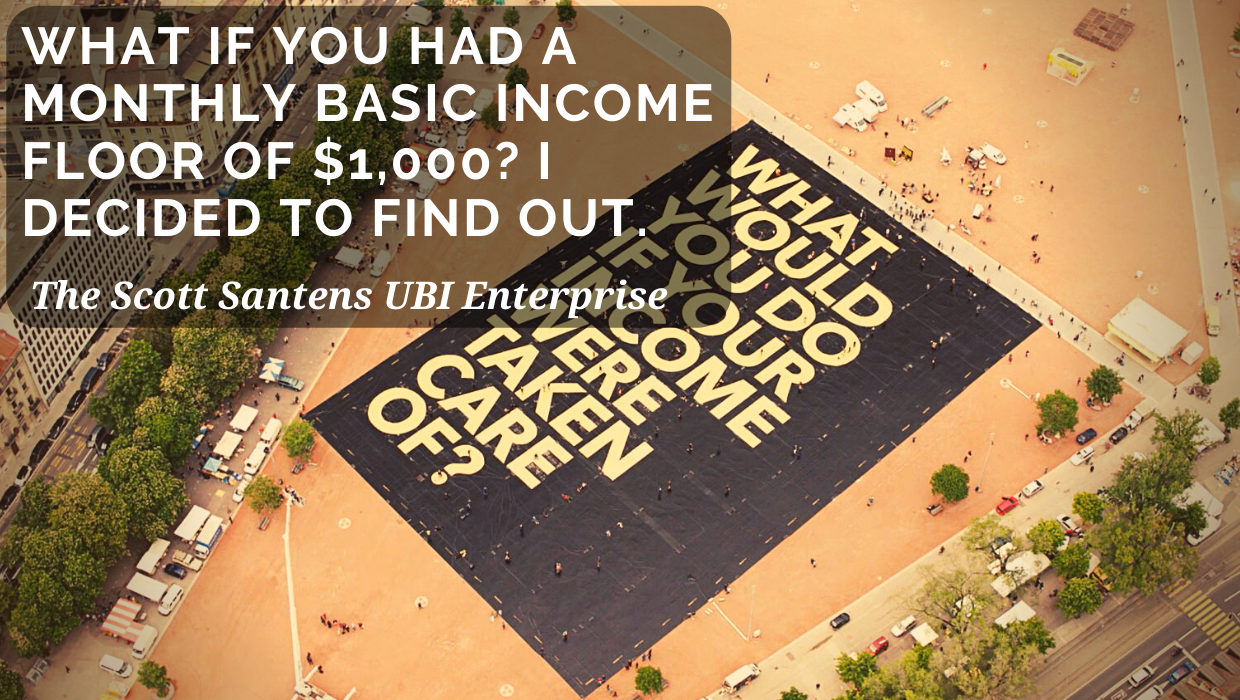Basic Income is JUST Compensation
Let's say the cost to produce a widget is $1. What's the cost to produce 1 million widgets? This may sound like an extremely simple word problem that even some preschoolers could solve. However, if you think the answer is $1 million, you would be entirely
What if you got $1,000 a month, just for being alive? I decided to find out.
My father has a basic income. As a retired United States Air Force officer, he has received a paycheck from the US government every month for about 30 years now, since he was 42 years old. His government pension is a monthly starting point above the poverty line — an income

Basic Income and Soylent
Many of you reading this already know this, but for those who don't, I have a crowdfunded basic income. This means that I start every month with $1,000 as my absolute minimum for the month no matter what. I'm free to then earn any amount
Love, Loss, and a Greater Society
On February 4th, I lost one of my closest friends I’ve ever had. Because I’ve always worked at home, we were together virtually 24 hours a day for almost 13 years. He felt like a part of me. His name was Stormy Waters and he was my dog.

Why We Should All Have a Basic Income
Consider for a moment that from this day forward, on the first day of every month, around $1,000 is deposited into your bank account — because you are a citizen. This income is independent of every other source of income and guarantees you a monthly starting salary above the poverty

Top 10 Basic Income Articles of 2016
As a moderator of the /r/BasicIncome subreddit, I read a lot of links about the idea of basic income on a daily basis. If I were to guess a number for the quantity of them I read in 2016 that somehow involved or alluded to the idea of basic
In the 21st century, all roads appear to lead to universal basic income
The idea of unconditionally providing all citizens an income floor sufficient for existence — a basic income [https://medium.com/basic-income] — looks to be at the intersection of an unstoppable congruence of events involving accelerating automation, growing inequality, the fragmentation of work, and the rise of the sharing economy. First, automation

A Basic Income Sermon for Christians
For some who are new to the idea of universal basic income, it may reflexively strike them as being somehow immoral. Be it seen as a form of theft [http://www.scottsantens.com/wouldn-t-a-basic-income-just-be-stealing-from-those-who-earned-their-money] , or in violation of the Protestant work ethic, or just plain feeling wrong [http://www.scottsantens.

Universal Basic Income Will Accelerate Innovation by Reducing Our Fear of Failure
Almost two centuries ago an idea was born with such explanatory power that it created shock waves across all of human society and whose aftershocks we’re still feeling to this day. It’s so simple and yet so powerful, that after all these years, it remains capable of making

True Freedom Comes With Universal Basic Income
> “I can’t not do this, because I need the money…” — The thought underlying all exploitation which can be eliminated with one BIG idea I attended a national economic conference [https://medium.com/basic-income/notes-of-discussions-in-the-north-american-basic-income-guarantee-congress-of-2015-56607ceb9362] in New York in 2015, and in one of the presentations, the speaker presented

